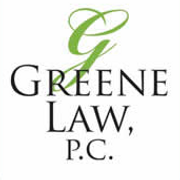
Dealing with insurmountable debt for any length of time can greatly affect your personal and professional life. Fortunately, filing for bankruptcy can provide the financial relief you need to gain a fresh start. However, this is a major decision that requires much consideration. It’s likely you’ll have a variety of questions as you try to determine if this is the right option for you. The following information will help give you a better understanding of what to expect from the process.
What to Know Before Filing for Bankruptcy
What’s the difference between Chapter 7 and 13?
Chapter 7 is considered a liquidation bankruptcy. This means a bankruptcy trustee can seize and sell your assets to pay off your creditors. Although, every state has a list of exemptions that help debtors protect much of their property. When the case is closed, your debts will be completely discharged. A Chapter 13 bankruptcy reorganizes your debts into an affordable repayment plan that lasts three to five years. As such, you will still be responsible for paying your financial obligations, but no assets are at risk of being liquidated.
What types of debts are discharged?
 In most cases, filing for bankruptcy will only discharge your unsecured debts. This includes credit card bills, medical expenses, and personal loans. Generally, secured debts cannot be discharged, such as mortgage or car loans, student loans, back taxes, and child support arrears. Under certain circumstances, student loans can be eliminated if you’re able to prove that repaying them would cause you undue hardship.
In most cases, filing for bankruptcy will only discharge your unsecured debts. This includes credit card bills, medical expenses, and personal loans. Generally, secured debts cannot be discharged, such as mortgage or car loans, student loans, back taxes, and child support arrears. Under certain circumstances, student loans can be eliminated if you’re able to prove that repaying them would cause you undue hardship.
How will bankruptcy impact my credit score?
While bankruptcy may bring down your credit score initially, it won’t be a permanent mark on your credit. Once your debts have been discharged, you can begin rebuilding your credit right away. Oftentimes, debtors are given the opportunity to open new lines of credit and show their creditworthiness again within a few years.
How do I qualify?
To be eligible for Chapter 7 bankruptcy, you must pass a means test that shows you don’t have enough disposable income to keep up with your debt obligations. If you earn too much, you won’t be able to file for a discharge. For Chapter 13 bankruptcy, you must owe no more than $394,725 in unsecured debts or $1,184,200 in secured debts to qualify.
If you think filing for bankruptcy may be the ideal solution to your financial troubles, turn to the legal team at Greene Law P.C. for a personalized assessment of your situation. They’ll help you determine if filing for bankruptcy is the best way to get your finances back on track. The firm has handled countless bankruptcy cases over the past 25 years, helping many residents throughout Hartford County, CT, achieve a debt-free lifestyle. Call (860) 676-1336 to schedule a consultation or visit them online to learn more about their services.
About the Business
Have a question? Ask the experts!
Send your question

